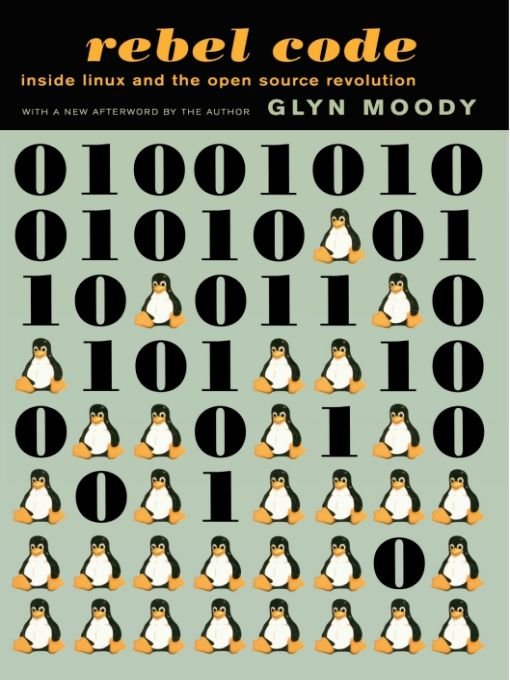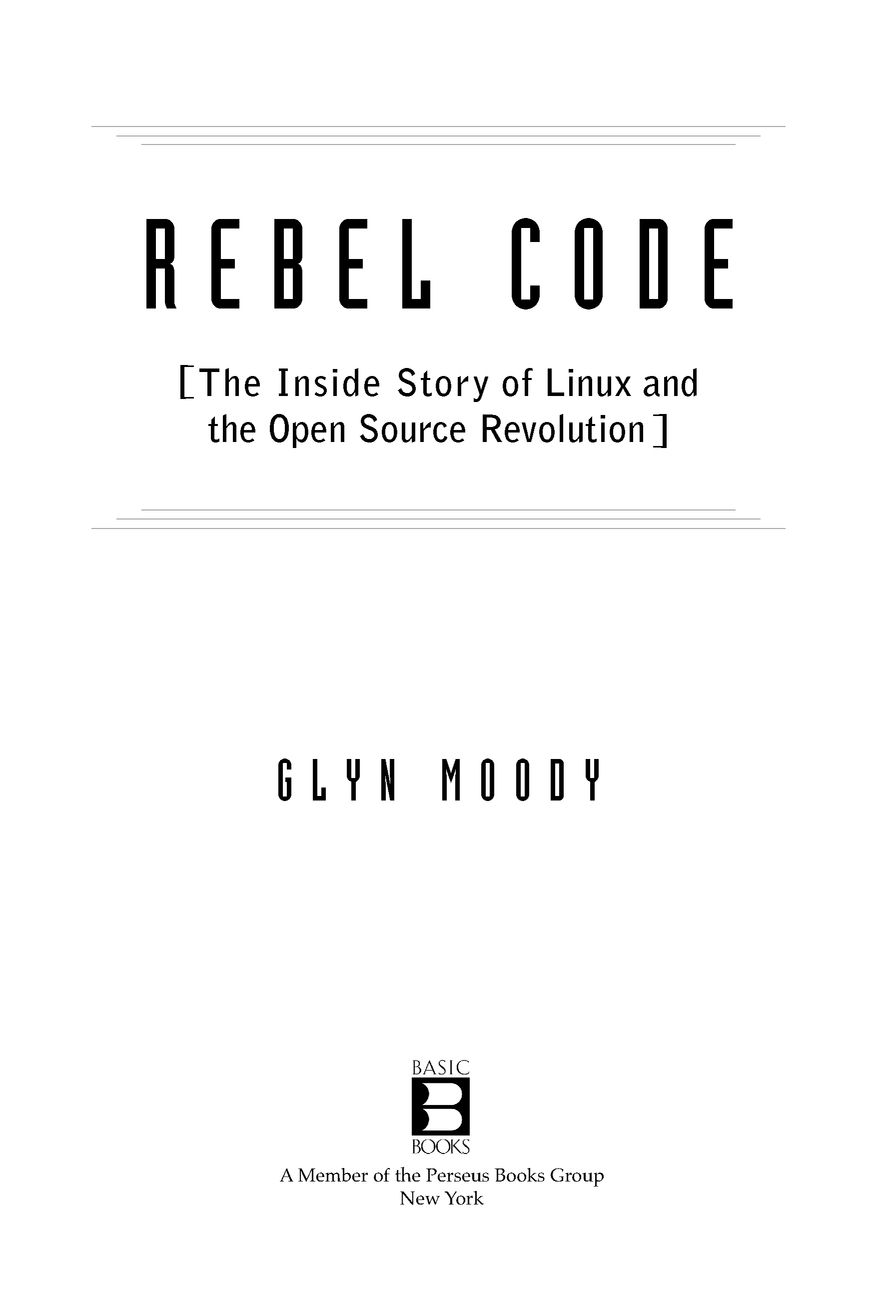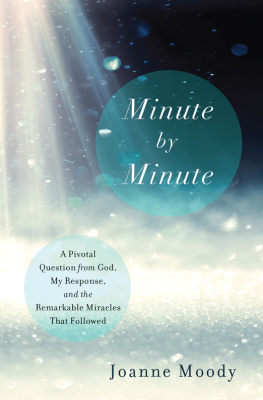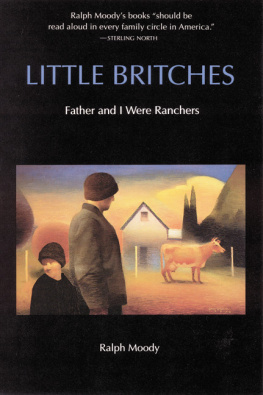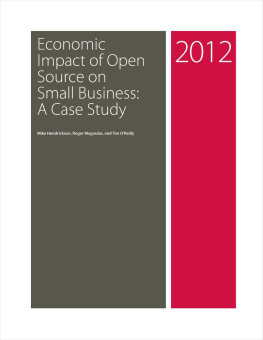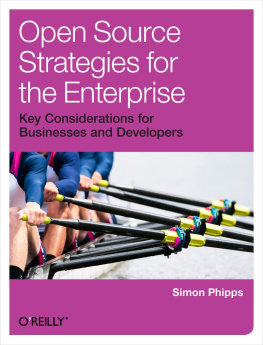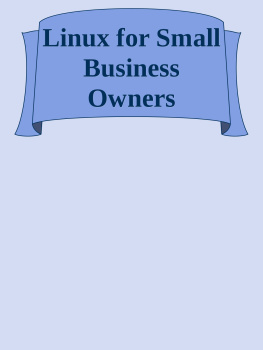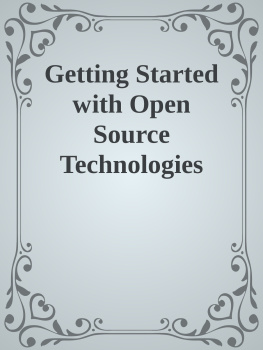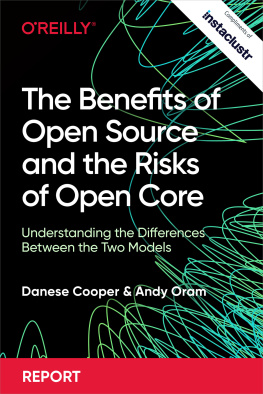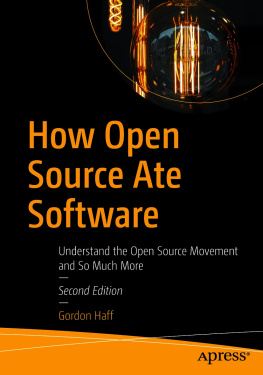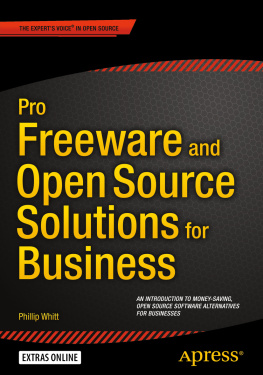Table of Contents
To My Family
NOTE TO THE PAPERBACK EDITION
Any book that deals with a fast-moving subject like free software is doomed to be out of date the moment it appears. But as the first edition of Rebel Code went to press at the end of 2000, the world of open source was changing even more rapidly and dramatically than usual. The dot-com boom years were coming to an end, and the market conditions that had allowed open source companies to prosper so spectacularly were disappearing.
The late 1990s were an exciting time for the free software world, and, despite the subsequent financial turmoil, their deeper achievements have proved enduring. Rather than rewrite the history of that period to take account of the later economic downturn, I have chosen to leave the main text of Rebel Code largely unchanged to reflect an important moment in computing history. I have, however, added a short Afterword that attempts to place those events in a broader context.
Glyn Moody
June 2002
ACKNOWLEDGMENTS
Unless otherwise noted, the vast majority of quotations in this book are drawn from interviews conducted between September 1999 and September 2000 in person, by telephone, or by e-mail. These have been supplemented by extensive material taken from an interview with Linus Torvalds at a critical juncture in his life, in December 1996, as well as other interviews with key players from the last three years.
I am particularly grateful to all these people, who somehow managed to take time from their important work and hectic schedules to talk to me, often at great length. My only regret is that because of space constraints I was not able to introduce more of their memories, thoughts, and comments.
Despite this generous help, I am conscious that there will be mistakes and omissions in this book, for which I alone am responsible. I would be happy to receive corrections as well as general comments on the text at glynmoody@rebelcode.net.
The 1996 interview with Linus Torvalds was carried out for a feature commissioned by Sean Geer, editor of the UK edition of Wired magazine. The feature eventually appeared as The Greatest OS That (N)ever Was in the August 1997 issue of the U.S. edition of Wired, where it was shepherded through by Jim Daly, a features editor at the time. Jim kindly suggested my name to Jacqueline Murphy of Perseus Books when, in 1999, she was looking for someone to write a book about GNU/Linux and open source. My thanks go to him, and even more to Jacqueline, my editor, who not only followed up the suggestion but also persuaded me that I should undertake this project. I am also grateful to Jacquelines assistant, Arlinda Shtuni, for her constant help; Marco Pavia for steering the book through production and to Jennifer Blakebrough-Raeburn for her sensitive copyediting.
Others who have provided key assistance along the way are David Croom, who offered valuable advice early on, and two people who kindly read draft versions of the text and made helpful comments, Anna ODonovan and Sean Geer.
Finally, I must record my deep gratitude to my wife and family, without whose constant support this book would not have been possible.
Glyn Moody
PROLOGUE
Outside, a louring Seattle sky broods over the clumps of squat white buildings scattered around an extensive campus in constant expansion. Neat lawns, assiduously tended flowerbeds, and the tidy ornamental ponds create a mood of cloistered reflection and tranquillity.
Inside, a similar calm reigns in myriad small offices where young men and women toil diligently. The silence is broken only by bursts of clattering keys; hardly a word is exchanged, as if a stern vow were in force. And yet despite a conducive environment and comforting faith, there is unease among the rooms inhabitants, a rising tide of something close to fear. They know that a terrible ghost is abroad in the cloisters of Microsoft.
The ghost has a name: open source. Its characteristics have been meticulously detailed by two of the companys expert ghost-watchers in a pair of lengthy memos. Though marked Microsoft confidential, they surfaced outside the company and were published on the Web, suitably enough during Halloween 1998. Forced to concede that the memos did indeed originate from within the company, Microsoft dismissed them as the private speculations of a couple of engineers.
As he read the memos describing this crazy phenomenon, Bill Gates must have shuddered in recognition; it was as if a spirit from the past had tapped him on the shoulder. Gates had sought to exorcise the ghost of free software over twenty years before.
In 1976, Gates had published what he calledwith what would prove deep ironyan Open Letter to Hobbyists, addressed to users of the first personal computer, the MITS Altair. Gates and Paul Allen, the other founder of Microsoft, had written a version of the Basic (Beginners All-Purpose Symbolic Instruction Code) language that would run on this rudimentary machinea considerable feat given its limited memory. Gates wrote his Open Letter to condemn what he saw as software piracymaking illegal copies of the program he and Allen had writtenbut which many users then regarded as part of the computer communitys long tradition of sharing useful tools.
In his tirade against the practice of passing around software, Gates thundered, As the majority of hobbyists must be aware, most of you steal your software. Hardware must be paid for, but software is something to share. Who cares if the people who worked on it get paid? He went on to claim that the result of such piracy is the prevention of good software from being written. After all, he asked rhetorically, Who can afford to do professional work for nothing? What hobbyist can put three man-years into programming, finding all bugs, documenting his product, and distribute for free?
As he penned these lines, Gates probably thought his arguments were unanswerable. And yet the Halloween memos, written by his own engineers, document in great detail the incontrovertible fact: There was now not just one hobbyist out there, but several thousand of them. Collectively, they were putting thousands of man-years into programming, finding bugs, documenting products, and then distributing them free, complete with the source codethat holy text that Microsoft and other software companies had withheld from profane eyes for the last twenty years.
In the light of his Open Letter to Hobbyists, the open source movement emerges as Bill Gates worst nightmare magnified a thousand times. Not just a few hobbyists who steal, but a thriving community that writes its ownexcellentcode, and then gives it away. Because their actions patently do not prevent good software from being written, they implicitly call into question the very basis of the Microsoft Empire: If good software can be written and given away like this, who needs Microsoft or companies like it?
The appearance of the Halloween Documents, and the fundamental issues they raise, could not have come at a worse time for the company. The antitrust lawsuit brought by the U.S. Department of Justice in 1998 had, for perhaps the first time, called Microsofts aura of invincibility into question. The lawsuits existence meant that people began considering, if only theoretically, the possibility of a computing world not dominated by the Redmond giant.

